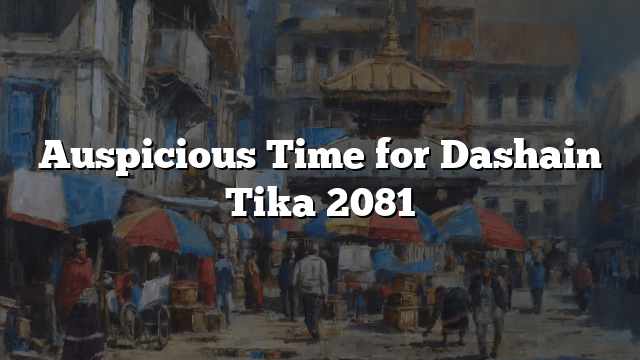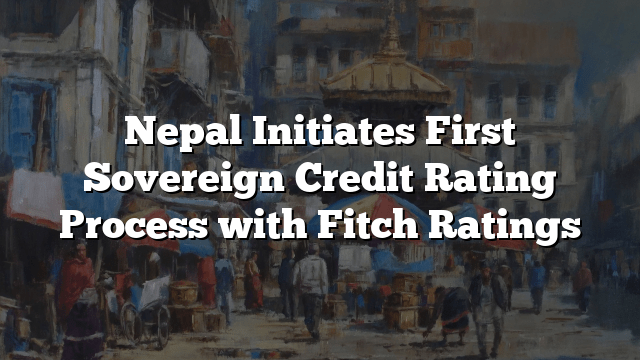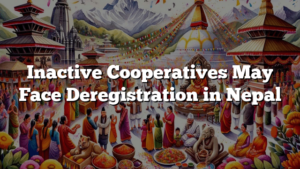
The government has rolled out some fresh regulations for keeping social media in check.
Recently, the Ministry of Communication and Information Technology crafted a set of guidelines in 2080 to rein in the misuse of social media. This blueprint received the green light at a Council of Ministers meeting held last Thursday.
This guidebook touches upon the necessity of enlisting social media platforms, the duties of those who operate these platforms, and the responsibilities of social media users.
A 3-Month Countdown
As per these guidelines, social media platforms operating within Nepal must be registered and obtain a license within a three-month window. These platforms will also need to renew their licenses every three years.
The directive makes it clear that social network platforms not on the list can be shut down at any moment. To facilitate the listing and authorization of social network platforms, a ‘Social Network Management Unit’ will be established within the Ministry of Communication and Information Technology.
The directive states, ‘Individuals or organizations running a listed social media platform must renew their license every three years. The Ministry of Communication can shut down unlisted social media platforms at any time.’
19 Things to Avoid
The directive has pinpointed 19 different activities as ‘off-limits’ in an effort to tackle distortions and anomalies commonly witnessed on social media.
“The aim here is not to stifle the freedom of thought and expression for citizens but to provide guidelines for self-regulation,” explained Government Spokesperson and Minister of Communication and Information Technology, Rekha Sharma, in an interview with Online Khabar. “We’ve seen various distortions and issues arising from users’ activities, and we aim to address those through these guidelines.”
The directive bans the creation of anonymous or fake identities, producing or sharing content, comments, or calls via fake IDs, and activities like character assassination, insults, image vandalism, and disrupting communal harmony through social media.
Sharing content based on community, caste, gender, religion, age, caste, class, profession, sect, marital status, or other similar categories is strictly prohibited. The guidelines also forbid activities such as child labor, human trafficking, polygamy, child marriage, and the use of insulting language and imagery intended to incite others.
Content that promotes violence, disturbs social harmony, or incites hate speech is defined as such within the directive. Distorted publication or broadcasting of a person’s image, sharing private content without permission, and the dissemination of obscene material is also against the rules. Child exploitation, sexual abuse, prostitution, false information, disinformation, and cyberbullying are also prohibited.
“Cyberbullying refers to discouraging, threatening, harassing, spreading false information, and abusing others through technology,” clarifies the guide.
Additionally, the directive bars the promotion of drug use, gambling, terrorism-related content, hacking, phishing, and impostor activities using social media. Posting or sharing misleading pictures and videos, advertising prohibited goods, or copying and sharing activities prohibited by existing laws is also not allowed.
Taranath Dahal, former president of the Federation of Nepalese Journalists, suggests that when creating social media regulations, consideration should be given to documents such as freedom of thought and expression and the United Nations Convention on Political Rights.
Dahal stated, “The directive hasn’t been made public, so it’s appropriate to reserve further comments until the details are available. Nobody should be penalized for violating the existing law; rather, it should be determined by the court, not the government, whether a user’s expression aligns with the law.”
Regulating Operators as Well
Social network platform operators will not be allowed to run their own advertisements. However, they must consistently publish educational and awareness content for the welfare and safety of social media users.
If the operator of a social network platform receives a complaint regarding content that violates the law, they must identify and remove it within 24 hours.
If there is knowledge of someone posting or about to post inappropriate content on social media, the social media management unit or relevant regulatory body may order its removal, and the platform operator must comply immediately.
The directive places a strong emphasis on maintaining the privacy of social media users’ personal details, suggesting the development and use of necessary algorithms for this purpose.
It states, ‘Social network platform operators must develop and utilize user engagement algorithms to prevent the publication or transmission of information, advertisements, and content that promote activities contrary to the existing law.’
The directive also mandates keeping users’ personal details confidential and implementing security standards while preventing their public release or misuse.
Addressing complaints received during social media use, prohibiting content that opposes national sovereignty, geographical integrity, and social harmony, and adhering to the Santa Clara principle are all part of the directive.
It also makes it obligatory for transactions made through social network platforms to be conducted via the banking system. These guidelines, approved during the Council of Ministers meeting, are awaiting formal publication in the gazette before being implemented.
Social network platform operators without an office in Nepal must establish a contact point within the country within three months of guideline implementation. This means that social media giants such as Facebook, Twitter, Instagram, and TikTok must now set up contact offices in Nepal.
To get listed in Nepal, the person or organization operating the social media platform can apply in person, through a representative, or online. Social network operators with over 100,000 users must establish an office in Nepal.
Major platforms like Facebook, TikTok, Twitter, Viber, WhatsApp, WeChat, and Instagram are widely used in Nepal. Their directors will need to appoint a contact office or representative in Nepal within three months.
The Ministry of Communications’ spokesperson, Subedi, has clarified that if content posted by social media users violates the current law, the government will request the platform operators not to remove the content.
The guidelines also include provisions for potentially punishing social media abuse. Discussions within the ministry are considering penalties and fines for criminal activities, and plans to bring social network operators under the scope of taxation are in the works.
Related:



